
Architecture, Computational Technologies, M.S.
Program Snapshot
30 Credits
Program Resources
Related Links
Locations
Explore design research at the frontiers of architecture through experimentation in computational design, robotic systems applied to fabrication and interactivity, and materiality. Innovate in design and creatively apply emergent technologies to unconventional spatial investigations, resulting in full-scale architectural prototypes and components.
Why Earn a Master’s in Architecture, Computational Technologies at New York Tech?
New York Tech’s Master of Science in Architecture, Computational Technologies (M.S.ACT) program integrates critical relationships between science and culture, fostering the development of new technologies with a keen focus on the history and theory of representation, robotics, and cybernetics. You’ll master the application, research, and advancement of computational design, robotic interaction and fabrication, and innovative materials.
Structured around core studios, seminars, and interdisciplinary project-based learning studios, the M.S.ACT program offers specialized expertise in three key focus areas: Computational Design, Fabrication and Robotics, and Materials.
Computational Design
You’ll delve into the history, theory, and criticism of representation systems, robotics, and cybernetics. Through practical research, you’ll acquire essential skills in coding, algorithm development, programming languages, data processing and simulations, augmented reality, computational modeling, machine learning, and artificial intelligence, all applied directly to architectural and ecological contexts.
Fabrication and Robotics, and Materials
In your second semester, the program shifts focus to applied research in physical computation, fabrication, and materials. This includes exploration of programming microcontrollers, designing robotic interactive systems, digital fabrication techniques, robotic construction systems, materials simulation, and optimization, encompassing a range of materials from traditional to cutting-edge biomaterials and responsive materials.
Project-based Learning
The culmination of your learning journey involves interdisciplinary and transdisciplinary experimental applied research, integrating all concentration areas into a full-scale interactive design and prototype at our Long Island campus. This project-based approach ensures you graduate with practical, real-world experience ready to tackle the challenges of tomorrow’s architectural landscape.
Request Information
Learn where a Master of Science in Architecture, Computational Technologies from New York Tech can take you. Complete the form to start the conversation.
What You’ll Learn
Explore new frontiers in architecture through computational design, interactive robotics, and innovative material experiments. Innovate and apply emerging tech to unconventional spatial inquiries, crafting full-scale architectural prototypes.
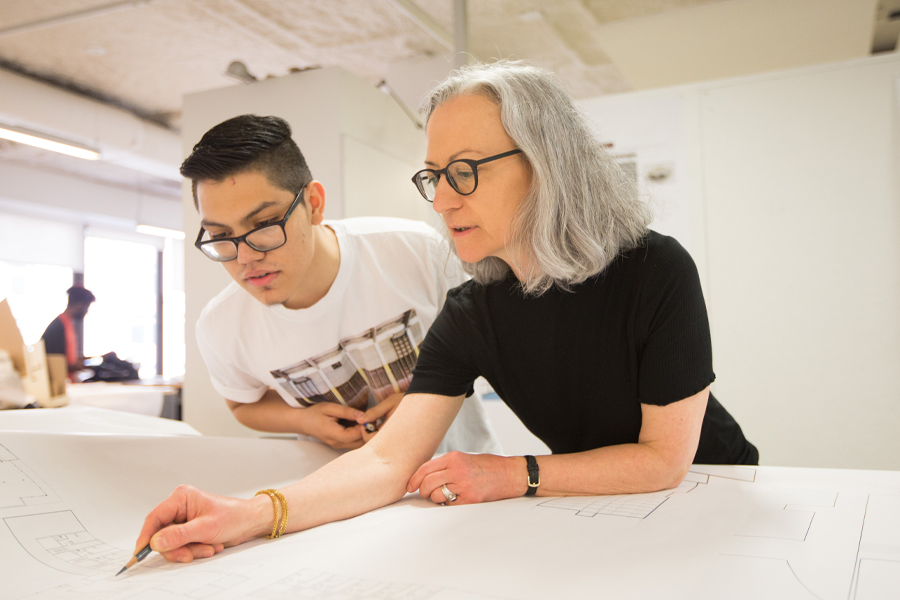
Customize Your Studies
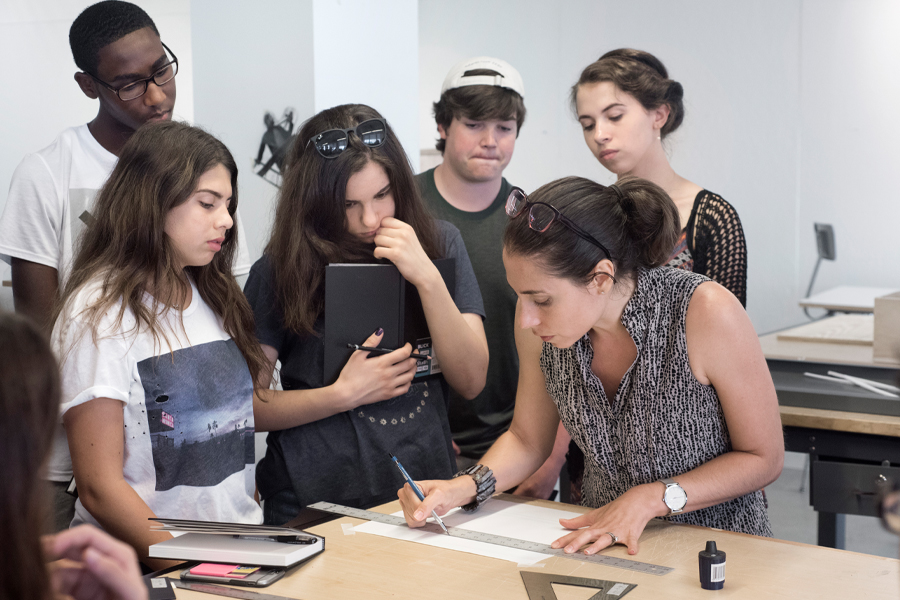
Summer Abroad Programs
Acquire a broad, global perspective of the role of architecture and related technologies. Whether in New York or overseas, you’ll learn from architects, designers, and industry professionals while observing various built environments.

Design Workshops
Through workshops and collaborative experiences, students from across the School of Architecture and Design use their knowledge to actively assist communities in need due to ecological, social, or economic factors.
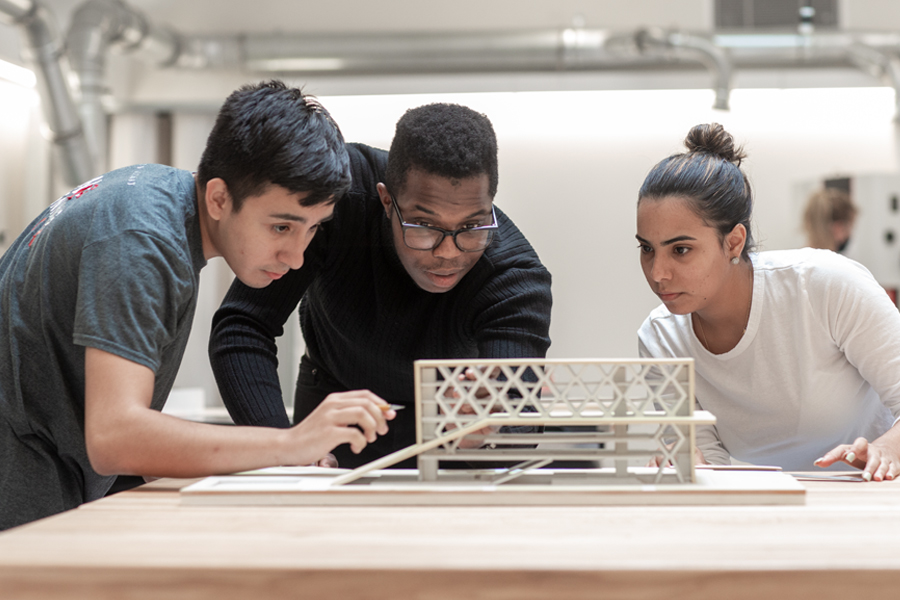
Fabrication Labs
Define your vision and deepen your creativity in two Fabrication Labs equipped with advanced tools for 3-D printing models, experimenting with AI, constructing virtual and simulated environments, and exploring the capabilities of robotics.
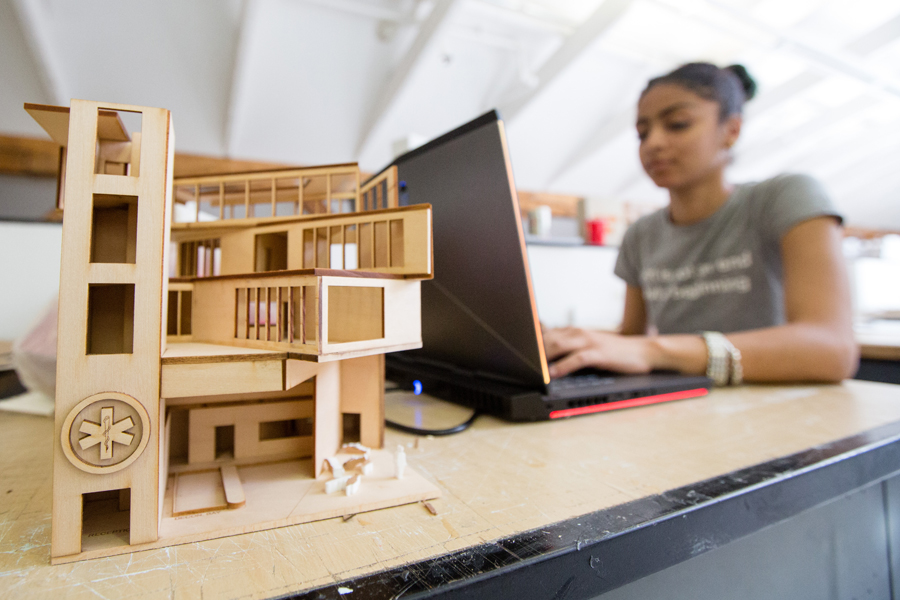
M.S. in Health & Design
Investigate the intersection of architecture, design, health, wellness, and the environment—from their influence on built environments to material selection and related prototyping and simulation technologies.
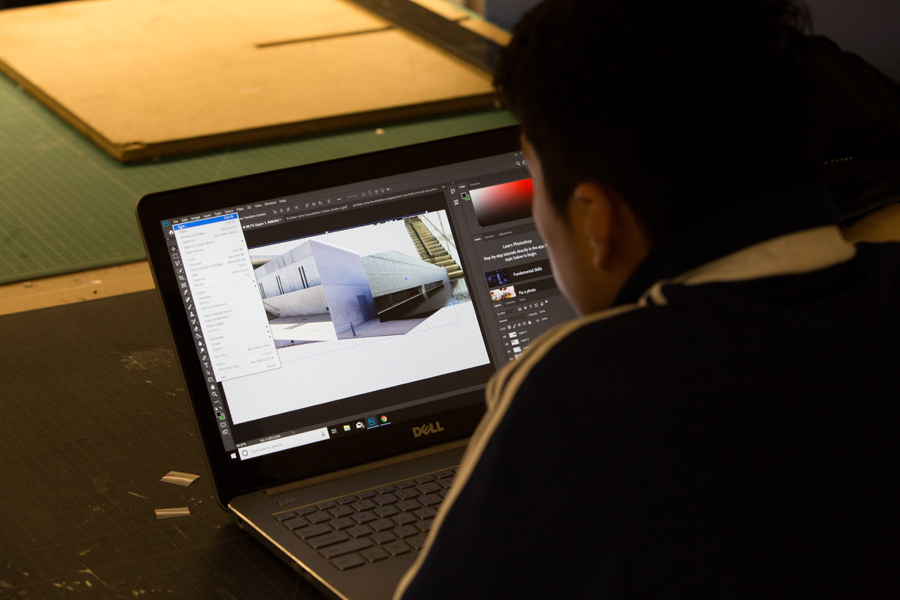
M.S. in Architecture, Urban Design
Rethink tomorrow’s cities while exploring how to use architecture as an agent of social change. While conducting research, you’ll deepen your knowledge of urbanism and explore current social, environmental, and technological factors.
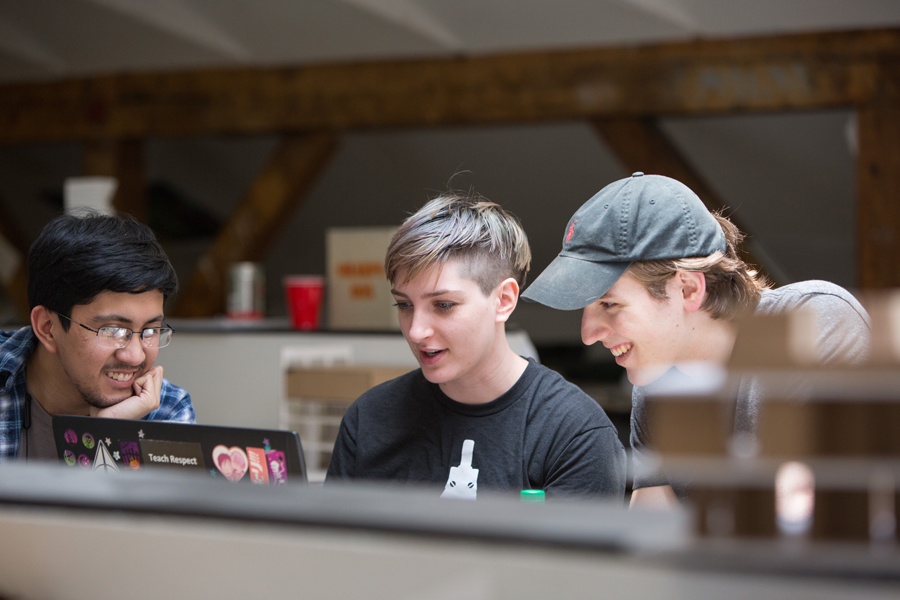
M.Arch. in Architecture
Whether you have an undergraduate pre-professional degree in architecture or a bachelor’s degree in another area of study, the New York Tech Master of Architecture program offers a pathway to a first accredited professional degree.
Stats & Rankings
#11
Best architecture colleges and universities in New York
Prepler.com
Top 17%
U.S. colleges for salary potential, based on mid-career earnings of alumni
Payscale.com
More
licensed architects in New York State are graduates of New York Tech than any other school.
Career & Salary Outlook
Job Growth
Employment of architects is projected to grow 5 percent from 2022 to 2032, with approximately 8,200 openings projected each year (BLS).
Career Options
- Computational Designer
- Digital Fabricator
- Gaming Environment Designer
- Parametric Designer
- Sustainable Designer
Salary Projections
The median annual wage for architects was $93,310 in May 2023. The highest 10 percent earned more than $151,300 (BLS).
Program Details
Learn more about the Architecture, Computational Technologies, M.S. program, including admission requirements, how to apply, and scholarship/funding opportunities. This program begins in September for two consecutive semesters (fall, spring) for 30 credit hours.
- Professional architecture or design-related degree from an accredited institution, or the equivalent, if applying with a foreign degree from another country
- Minimum GPA of 3.0
- Completed application; $50 nonrefundable application fee
- Copy of college diploma or proof of degree
- Two letters of recommendation from references who have direct knowledge of the applicant’s professional potential and academic ability.
- Copies of undergraduate transcripts for all schools attended. All final, official transcripts must be received before your first semester starts.
- International student requirements: English proficiency (TOEFL/IELTS), I-20, and transcript evaluation.
Supplemental Application Materials
- Curriculum Vitae: a one-page resume with your portrait photo, name and last name, contact information, degrees, accomplishments, exhibitions, publications, projects, research, associations, skills, etc.
- Personal Essay/Statement of Interest (500–1000 words)
- Digital Portfolio of Creative Work
Explore opportunities to offset program costs, including New York Tech scholarships, graduate assistantships, and federal financial aid.
International F-1 students who successfully complete this degree program are eligible for an additional 24-month STEM OPT extension to work in the U.S. in an area directly related to their area of study immediately upon completing the customary 12-month post-completion Optional Practical Training (OPT).

Keep Exploring
Unlock your future in architecture with the Architecture, Computational Technologies, M.S. program at New York Tech and discover your path today!